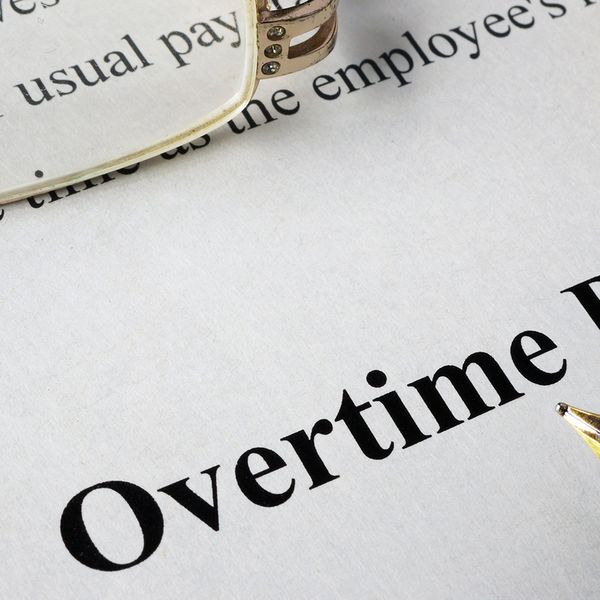Giving bonuses could affect overtime pay
Friday, March 3, 2023, is Employee Appreciation Day. Bonuses are a great way to show appreciation for nonexempt employees, but they might affect an employee’s overtime pay.
The amount of overtime pay due to an employee is based on the employee’s regular rate of pay and the number of hours worked over 40 hours in a workweek. This is regardless of whether the employee is paid on a piece rate, day rate, commission, or a salary basis.
A bonus is a payment made in addition to the employee’s regular earnings. Under the Fair Labor Standards Act (FLSA), all compensation for hours worked, services rendered, or performance is included in the regular rate of pay. Some payments may be excluded from the regular rate of pay.
Discretionary bonuses
Employers may exclude discretionary bonuses from the regular rate of pay. A bonus is discretionary only if all these requirements are met:
- The employer has the sole discretion to determine whether to pay the bonus;
- The employer has the sole discretion to determine the amount of the bonus; and
- The bonus payment is not made according to any prior contract, agreement, or promise causing an employee to expect such payments regularly.
Some examples include the following:
- Bonuses for overcoming a challenging or stressful situation;
- Bonuses to employees who made unique or extraordinary efforts not awarded according to pre-established criteria;
- Employee-of-the-month bonuses;
- Severance bonuses; and
- Referral bonuses to employees not primarily engaged in recruiting activities (subject to additional criteria).
The employee, their job title, and the reason for the bonus are not the main factors on which employers determine whether a bonus is discretionary. The bonus must comply with the FLSA, no matter how it’s labeled, to be an excludable discretionary bonus. The determination must be made on a case-by-case basis depending on the specific circumstances.
A discretionary bonus may not be credited towards overtime pay due under the FLSA.
Nondiscretionary bonuses
A nondiscretionary bonus is a more predictable bonus that is included in the regular rate of pay unless the bonus fits an FLSA exclusion.
Some examples include the following:
- Bonuses based on a predetermined formula, such as individual or group production bonuses;
- Bonuses for quality and accuracy of work;
- Bonuses announced to employees to induce them to work more efficiently;
- Attendance bonuses; and
- Safety bonuses (i.e., number of days without safety incidents).
Such bonuses are nondiscretionary because the employees know about and expect the bonus. The fact that the employer has the option not to pay the promised bonus does not make the bonus discretionary.
How to calculate overtime with nondiscretionary bonus
Calculating overtime pay, especially when bonuses are involved, can be tricky for employers.
Here is an example to help illustrate:
A nonexempt employee is paid $10 per hour. During a particular week, the employee receives a $50 bonus for helping with a special order for a customer. That week, the employee worked 43 hours. Calculate the overtime as follows:
- $10 per hour x 43 hours = $430 (total compensation for straight time)
- $430 + $50 (bonus) = $480 (total compensation)
- $480 ÷ 43 hours = $11.16 (regular rate)
- $11.16 x .5 = $5.58 (half time premium pay rate)
- $5.58 x 3 overtime hours = $16.74 (overtime pay due)
- $480 + $16.74 = $496.74 (total due)
Key to remember: Providing bonuses can have a positive impact on employee motivation and morale. Employers must remember, however, that bonuses might need to be included in overtime calculations.























































